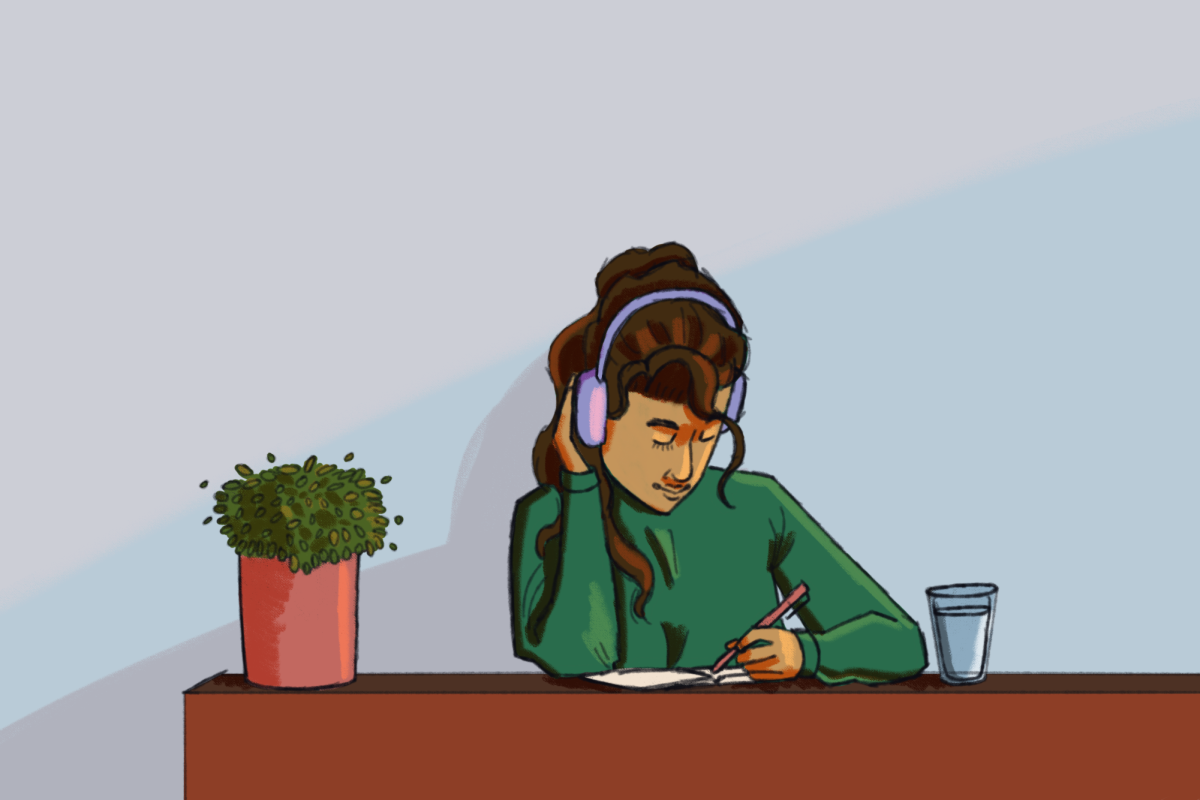Have you ever scrolled on YouTube or Spotify and saw recommendations for “study beats,” “lofi beats,” or any similar “focus booster”? Music marketed as “beats to study to,” especially particular genres such as “lo-fidelity” and similar music styles, have skyrocketed in popularity among today’s students, garnering thousands of views and streams, with significant influences catalyzed by music labels such as “Lofi Girl.”
According to a 2021 study conducted by Dutch scientists and published in Acta Psychologica, younger people, primarily teenagers and young adults, use background music more frequently for various tasks than older adults.
Ken Gray, a psychology professor at College of DuPage, acknowledged the nuances of benefits derived from music, clarifying that the benefits vary and do not necessarily aid listeners academically.
“One key area where music can help is with creativity,” he said. “There is some research that suggests that listening to music can enhance creativity. Music can also be helpful in some fairly specific situations. If you are doing something uninteresting and you are in an environment where there are distractions, background music can help you focus. But still, keep in mind that you are probably better off moving to an environment without those distractions and working in silence.”
Gray made mention of particular genres that may be more appropriate for circumventing or reducing distraction in a disruptive environment.
“Research suggests that music with less acoustical variation is less disruptive. Also, music without lyrics impair performance less. Also, some (but not all) research suggests that music that you like is less disruptive than music you don’t like. Note this is different from helping, it is just less disruptive.”
Alex Zavala, a kinesiology student at College of DuPage, believes music aids her study sessions. She said— “Floating Points” by Pharoah Sanders, a jazz-classical album, is one of her favorites.
“The record overall has a very slow tempo,” she said. “It’s very relaxing. I like having some background noise, and anything with lyrics to them or anything with lots of depth in its sound usually distracts me. That’s why I really like this record.”
Gray noted how music can actually reduce performance and focus in tasks that require strenuous cognition or focus.
“Generally speaking, it is probably not a good idea to listen to music, especially for cognitively demanding studying or homework,” he said. “If the work requires you to mentally process the information, most (but not all) research suggests that music will probably harm performance. Reading comprehension and memory are two key areas that probably suffer from having background music. Outside of the distraction scenario, there is not a lot of compelling evidence that suggests that music will enhance focus. Something like lofi beats would probably be pretty effective in that distraction scenario.”
The aforementioned study supports Gray’s assertions, citing that genres such as classical, instrumental, and other calm genres were less distracting and more conducive to cognitive performance than pop music, music with lyrics, and generally more upbeat music styles. It also made note of how participants used background music less frequently when engaged in more difficult cognitive tasks such as memorizing as opposed to less cognitively demanding tasks like reading and writing. Zavala acknowledged how music use is situational and that people’s preferences differ.
“[It depends on] preference,” she said. “I know some people can multitask – I review music I listen to critically. Sometimes music isn’t for me, [for] others it is. I think it should be something that varies. Some days I feel like I would rather have no sound. Other days I need ambience.”
Gray validated the sentiments many feel about music’s effect on mood and motivation, and made recommendations to students for how to wisely utilize music for optimal cognitive performance.
“If students say that they need music to put them in a good mood and boost their motivation, they are probably on to something,” he said. “This is called the mood and arousal effect. Music, especially music you like, can definitely get you in a frame of mind to be able to be more productive. The key thing is, though, that the music happens before the task begins. So it would be a great idea to use music to help prepare you for a period of studying. Then, when your motivation starts to dip, take a music break.”









